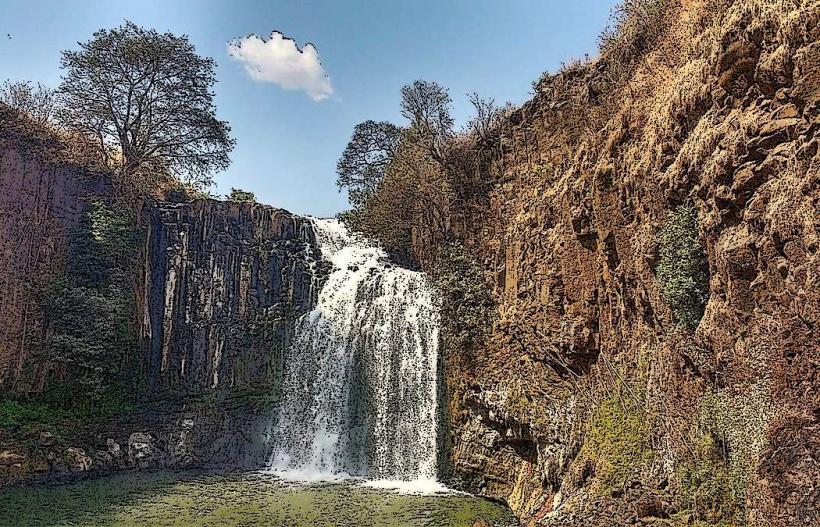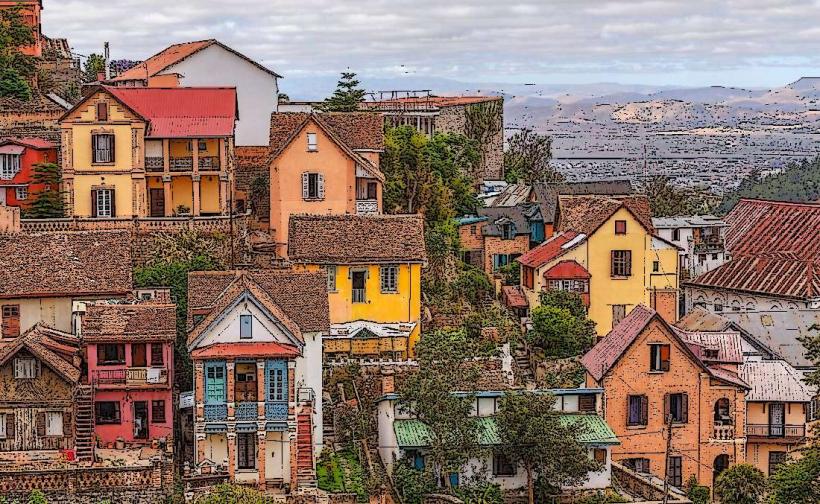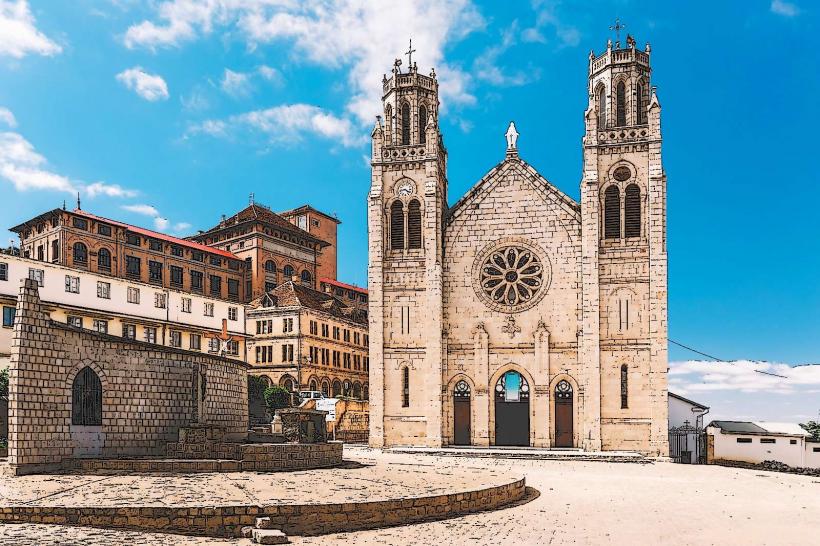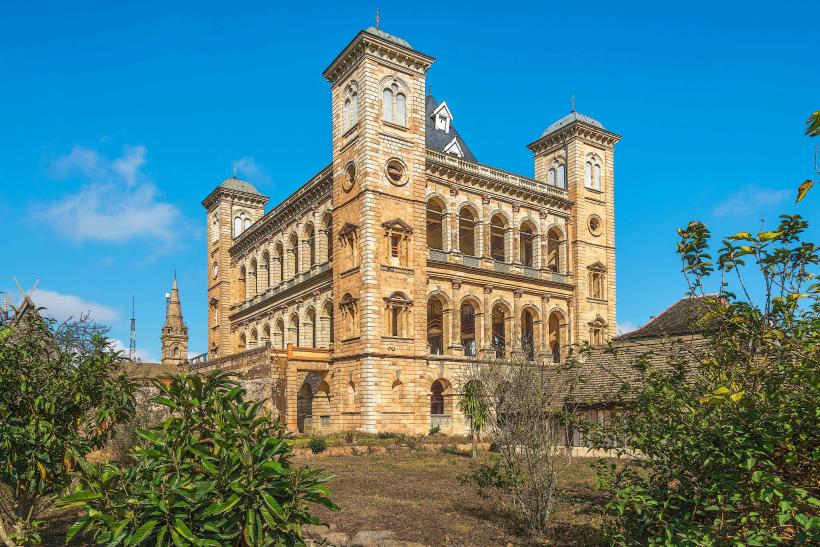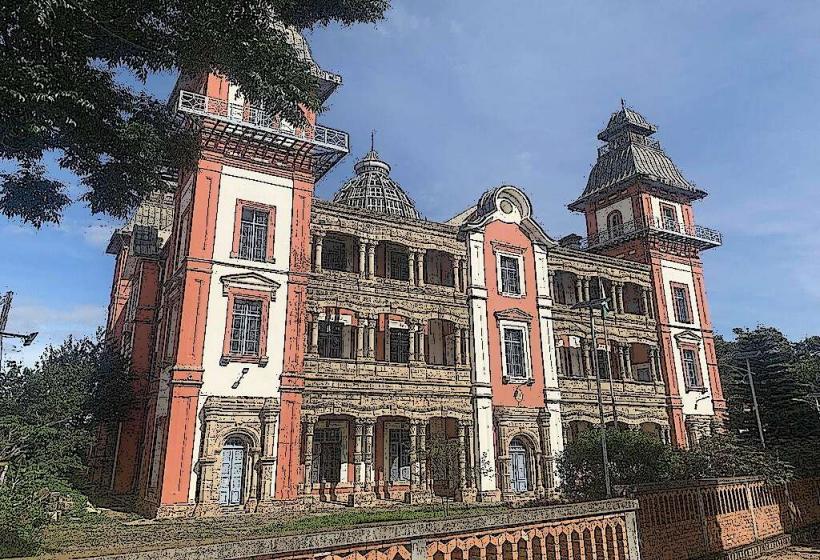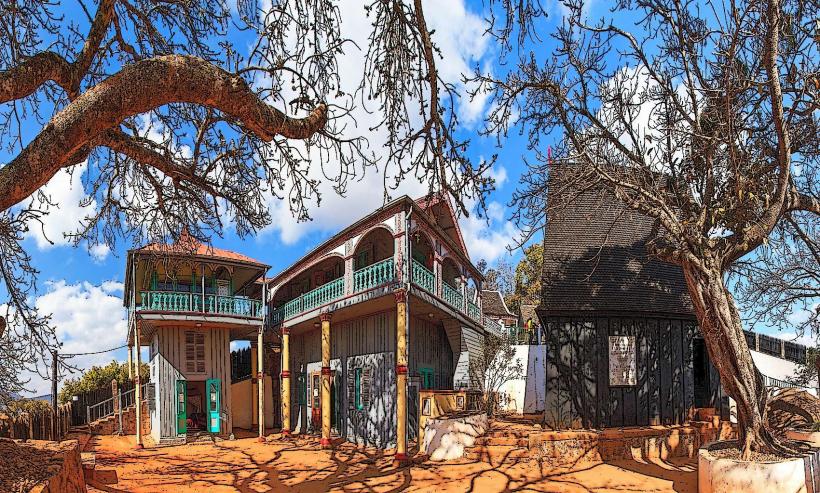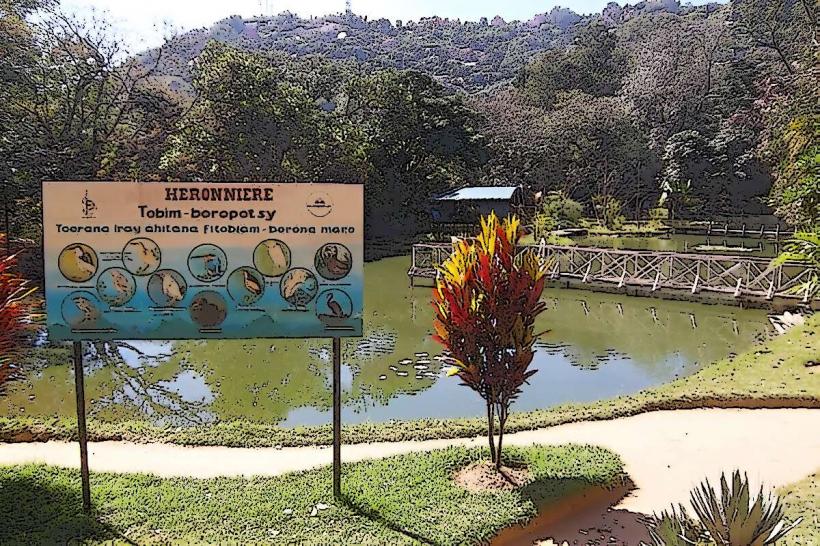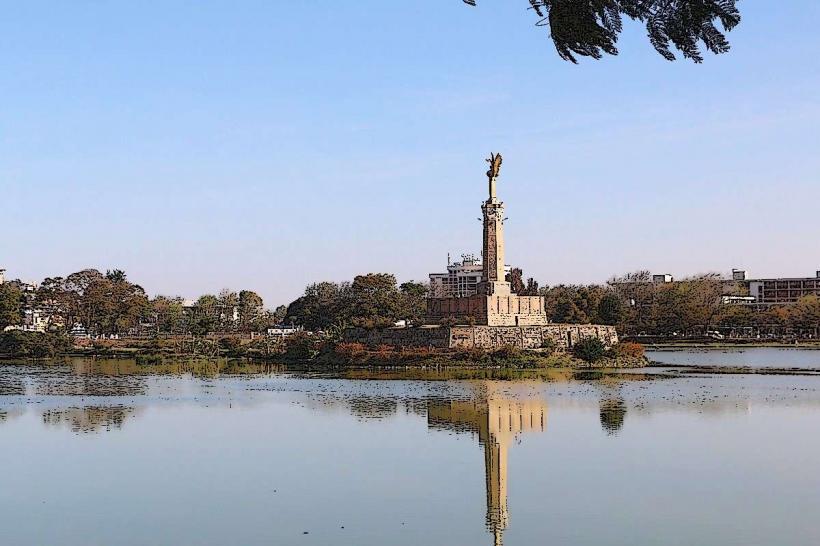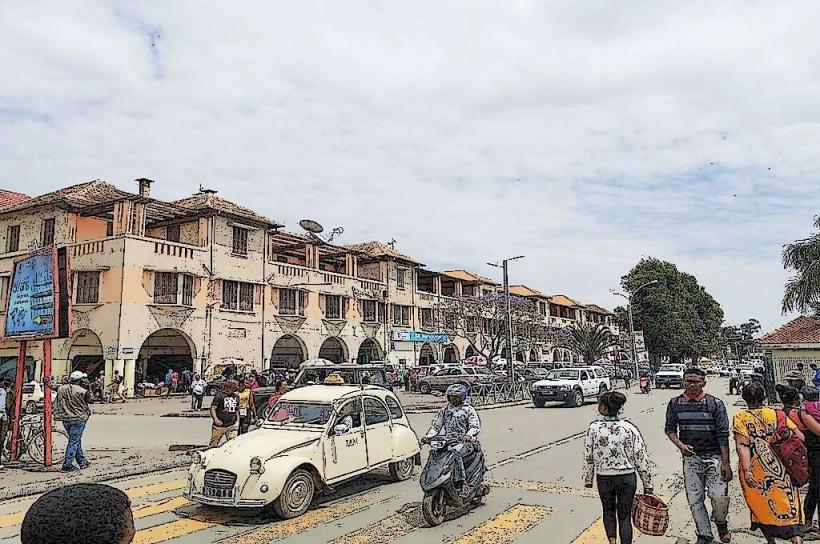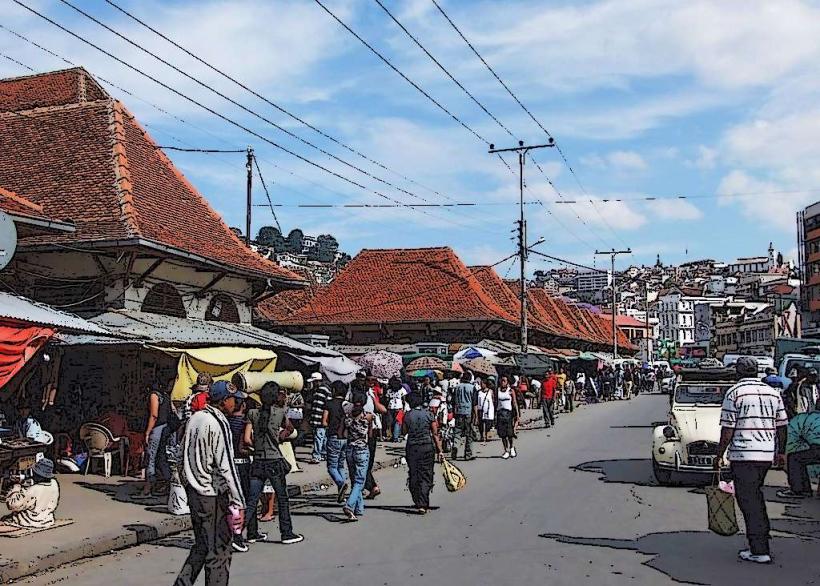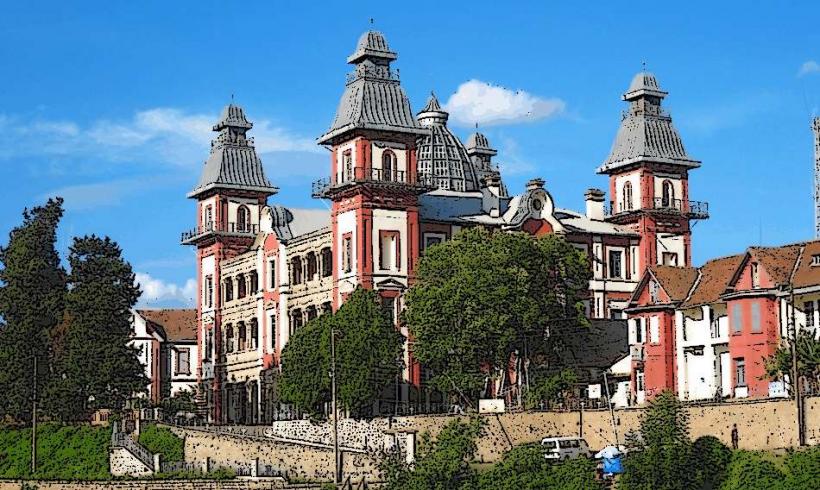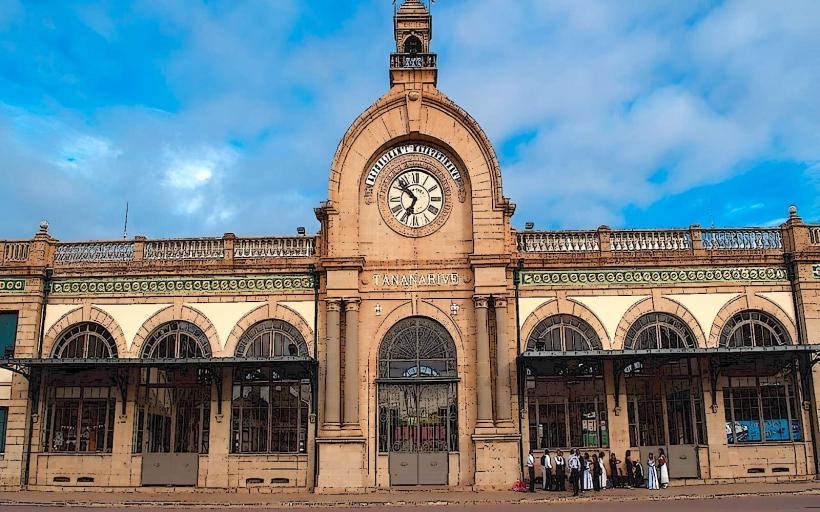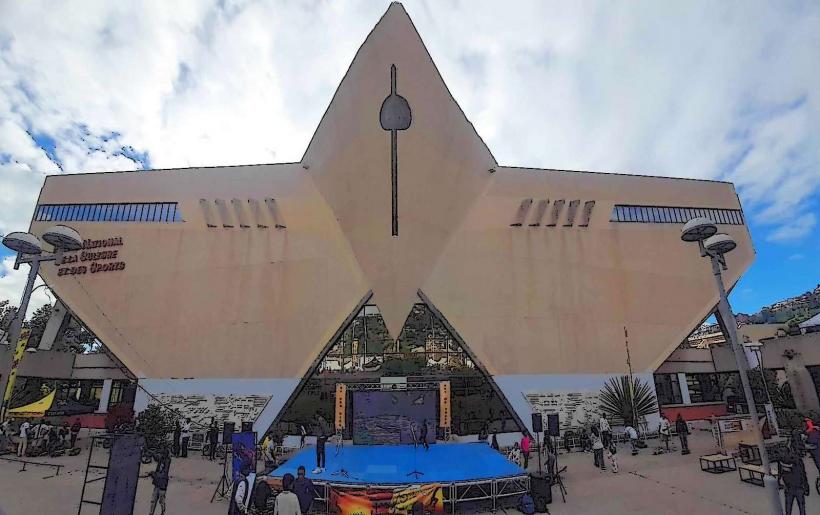Information
Landmark: Antananarivo City HallCity: Antananarivo
Country: Madagascar
Continent: Africa
Antananarivo City Hall, Antananarivo, Madagascar, Africa
The Antananarivo City Hall serves as the municipal administrative headquarters for the capital city of Antananarivo, situated in the central region of Madagascar.
Visual Characteristics
The building exhibits a Neoclassical architectural style, characterized by its symmetrical facade and prominent columns. It is primarily constructed from concrete and painted in a light, often white or cream, color. A distinctive dome crowns the central section of the structure, contributing to its recognizable silhouette against the city skyline. The building features multiple stories, with large windows providing natural light to interior spaces.
Location & Access Logistics
The Antananarivo City Hall is centrally located on Avenue de l'Indépendance, adjacent to the Analakely Market. It is effectively at the heart of the city center. Parking directly at the City Hall is limited and primarily reserved for official vehicles; public parking options are scarce in the immediate vicinity. The area is well-served by local taxi services and numerous public transport routes, including various "taxi-be" (minibus) lines that converge on Avenue de l'Indépendance and the nearby Gare Soarano (train station).
Historical & Ecological Origin
The original Antananarivo City Hall was constructed in 1935 during the French colonial period. This initial structure was destroyed by fire in 1972 during political unrest. The current building was reconstructed and inaugurated in 1973, largely replicating the architectural style of its predecessor to maintain historical continuity. Its primary purpose has consistently been to house the city's municipal government and administrative services.
Key Highlights & Activities
Visitors can observe the building's Neoclassical architecture from Avenue de l'Indépendance. The surrounding area offers opportunities to experience the bustling urban environment of Antananarivo, including the nearby Analakely Market. Access to the interior is generally restricted to those with official business.
Infrastructure & Amenities
Public restrooms are not readily available within the City Hall itself for casual visitors, though facilities exist for staff. The exterior offers minimal shade. Cell phone signal (4G/5G) is strong in this central urban location. Numerous food vendors, restaurants, and cafes are located within a 100-meter radius along Avenue de l'Indépendance and in the Analakely Market area.
Best Time to Visit
The best time to view the Antananarivo City Hall externally is during the dry season, from April to October, when weather conditions are generally clear and mild. Morning or late afternoon light provides optimal conditions for photography, highlighting the building's architectural details without harsh midday shadows.
Facts & Legends
The reconstruction of the City Hall in 1973, just one year after its destruction, symbolized the city's resilience and commitment to restoring its administrative core following a period of significant political upheaval. The rapid rebuilding effort was a point of national pride.
Nearby Landmarks
- Analakely Market: 0.1km East
- Gare Soarano (Train Station): 0.3km North
- Rova of Antananarivo (Queen's Palace): 1.5km West (uphill)
- Lake Anosy: 1.8km South
- Andafiavaratra Palace: 1.2km West


